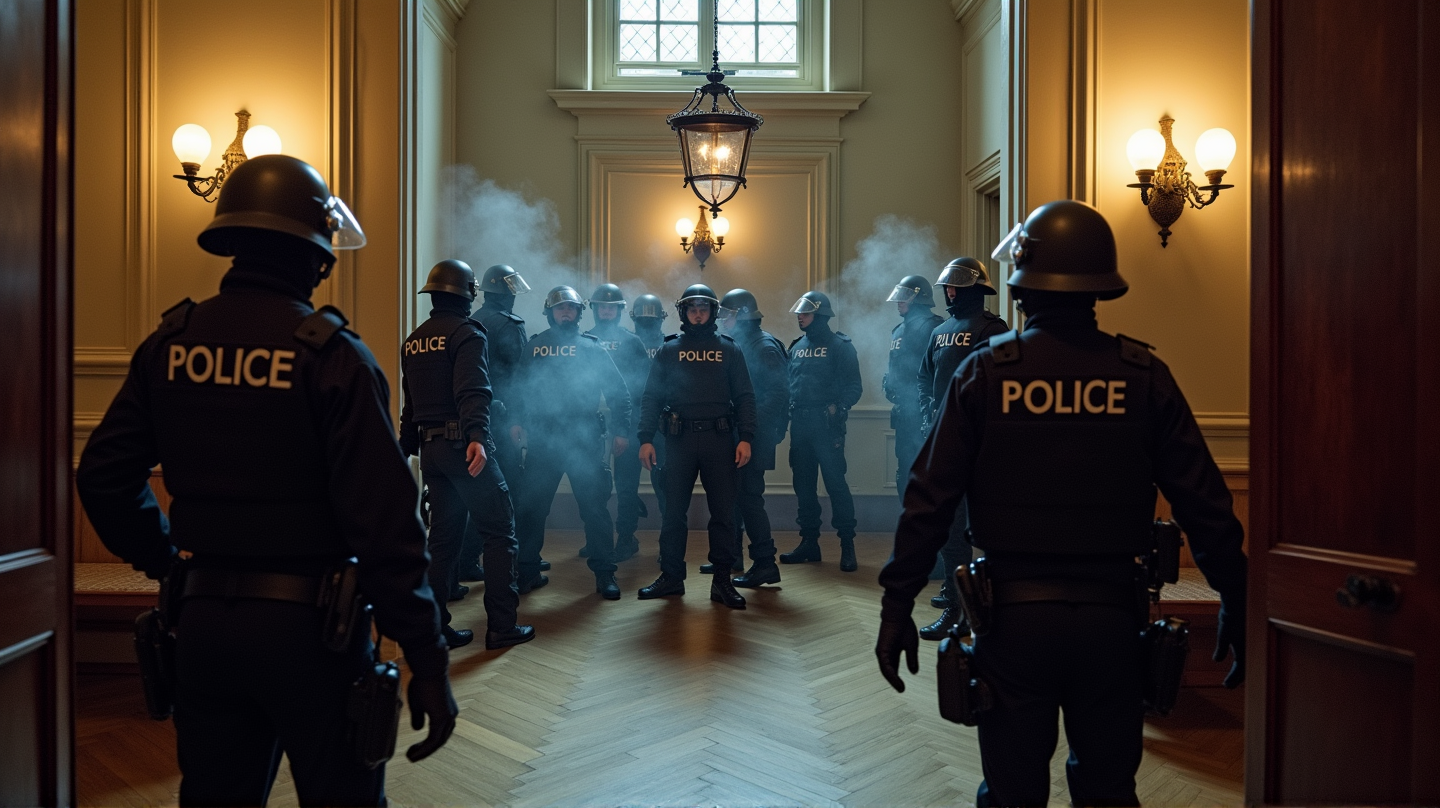Britain's First Raid on Quaker House Sparks Global Outrage
British police raid a Quaker meeting house, targeting Youth Demand activists accused of 'public nuisance' amid controversial law enforcement.

In an unprecedented act, British police have stormed a Quaker house of worship, catalyzing a global debate on civil rights and government overreach. On March 27th, over 20 officers, some reluctantly armed with Tasers, raided the serene Westminster Quaker Meeting House, targeting Youth Demand activists. This controversial raid marks the first time such an intrusion has been executed in these sacred spaces, best known for representing peace and tranquility.
Peaceful Protests Met with Force
Youth Demand, an activist group focused on nonviolent resistance and educating the masses, was conducting a peaceful gathering when the officers intruded. The raid on their meeting, which centered around protests against issues like climate change and the ongoing genocide in Gaza, left six women arrested under the charge of “conspiracy to create a public nuisance.” Reflecting on a harsh scene, Quaker member Ella Taylor described the chaos and disbelief witnessed within a place that symbolizes peace.
Disproportionate Crackdown on Activism
The police justified their forceful action by invoking a law aimed at thwarting protests deemed disruptive. However, the public raises eyebrows at its selective enforcement, a point noted by sources like The Guardian, which highlighted the unequal reaction to similar actions by far-right groups. Critics argue this double standard showcases a bias towards stifling progressive activism, especially those challenging environmental and humanitarian injustices championed by groups like Just Stop Oil.
Government Stance and Future Implications
Surprisingly, Rishi Sunak’s current administration appears to foster this legislative trend, aimed at curtailing actions that threaten corporate or governmental solitary interests. The response by Keir Starmer’s Labour government, opting not to revoke the law and even considering its expansion, has left civil rights advocates worried about potential abuse. According to Current Affairs.org, critics fear new legal provisions could empower police to arrest protestors near any religious building under pretenses that obscure underlying motives.
Echoes of Historical Injustice
The seemingly politically motivated raids have drawn historical parallels, evoking unsettling memories of past governmental overreaches against civil liberties. As these actions potentially criminalize dissent, parallels with historical biases emerge, drawing scrutiny from domestic and international rights organizations.
An Alarming Precedent
This event throws a spotlight on the broader narrative of civil liberties being squeezed under the pretext of maintaining public order. With activism and climate justice groups increasingly targeted, global movements rally to push back against what many call a chilling precursor to authoritarian control.
The unfolding story serves not only as a wake-up call for Britain but also as an alarm for the international community regarding human rights standards. As the saga develops, civil liberty advocates remain alert, rallying efforts to reverse this trend before it sets a dangerous international precedent.





